On the occasion of National Eczema Awareness Day, pharmacist Florence, 30, tells us about her fight against this skin disease.
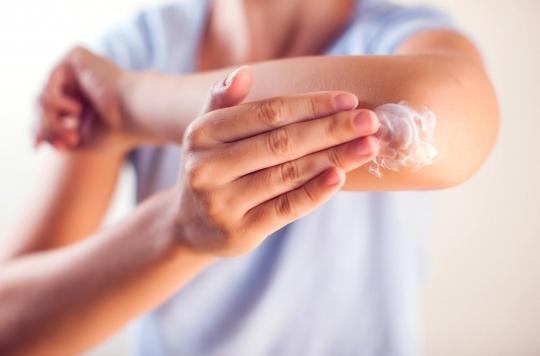
- Eczema affects the quality of life of 2.5 million French people of all ages.
- Eczema is a chronic skin disease that occurs through inflammatory flare-ups and can affect all parts of the body.
Why doctor – What type of eczema do you suffer from?
Florence- I have atopic eczema (or atopic dermatitis), which is a chronic skin disease caused by a genetic abnormality of the skin barrier.
What are your symptoms ?
I alternate the times when things are going well and the times when things are not going well. When I have a flare, I have red patches on my face, hands, eyes, and sometimes on my shoulders or arms. Over the past year, I have also developed severe atopic conjunctivitis. Without treatments, my eyes water and burn.
How do you take care of yourself?
I treat my eyes morning and evening with different kinds of drops, which I collect from the hospital. I also put cortisone on the red patches when they appear on my skin.
I also pay attention to the products I wash with: I use a fragrance-free cleansing oil, suitable for atopic skin. I also regularly use moisturizer designed specifically for skin with eczema.
On the other hand, I never took tablets or received injections, like some patients with severe eczema.
Is it difficult to manage eczema on a daily basis?
No, because I’ve learned to live with it, and there are diseases that are much harder to manage than eczema. But I still sometimes feel very tired. I’m tired of putting on my cream, my drops, of paying attention to everything I buy…
When did the disease start?
I was born with eczema, and I had it all my childhood, mainly in the form of patches and itching in the neck, behind the ears, on the face… All the more typical.
The disease disappeared during my adolescence, then woke up very suddenly when I was 21, during my higher education. The thrusts that then started were extremely strong: I had plaques from head to toe. I didn’t go to college for a week because I was so disfigured. As the city dermatologists did not satisfy me, I ended up landing in the hospital, where I was treated very well.
Do you think there were triggers for the sudden return of your eczema?
Even though this disease is not only related to the mind, I was not very well in my life at that time. I worked a lot, I was very tired, stressed and I had just been dumped.
How did you then experience the return of the disease ?
I had a hard time accepting it, because if I had a happy childhood, it was still marked by eczema. Unlike my sister, my mother, for example, cut all the labels off my clothes, I couldn’t go to the swimming pool because the water stung me, people said all the time that I had fragile skin…
Have you been discriminated against because of your skin condition?
“Discrimination”, I wouldn’t go that far. But before the masks arrived, some customers were able to stare at the redness around my mouth insistently, which is embarrassing. Beyond the gaze of others, what weighs me the most is their words. People ask a lot of questions: “What’s wrong with you? Why is it red? You should do this, do that…” And everyone has their own opinion on the disease, it is very painful.
Does atopic dermatitis impact your daily life?
In terms of beauty, I wear very little makeup on my face, even if I sometimes try to camouflage my lesions.
At the pharmacy, some people may have also thought that I was cold and evasive, because when my eczema started in my eyes, I had trouble looking at them frankly because of my redness. Still on the professional level, the disease also has a positive impact, because I have more empathy than the average with people with skin problems.
When I was younger, I did my graduation thesis on atopic dermatitis. Finally, eczema pushed me to get involved in associations, particularly through therapeutic training. It is very important to me to help other patients.
What about your love life?
Today, I am very lucky to have a very understanding husband. When I have a flare up and just want to go to bed without talking, he doesn’t fuss. It must not be easy for him, but he does not show it to me.
Before this love story, eczema could have complicated meetings, because I put up barriers for fear of the judgment of men. I told myself that I did not please, and I dared not uncover my shoulders.
Should certain things be improved in France for people who suffer from eczema?
We should put an end to the cliché which consists in believing that eczema is necessarily linked to stress. Atopic dermatitis is in the skin, not in the head!
Severe eczema should also be truly recognized as a global disease, which goes beyond the skin. There are patients who take a very long time to treat themselves, with multiple associated allergies.

.












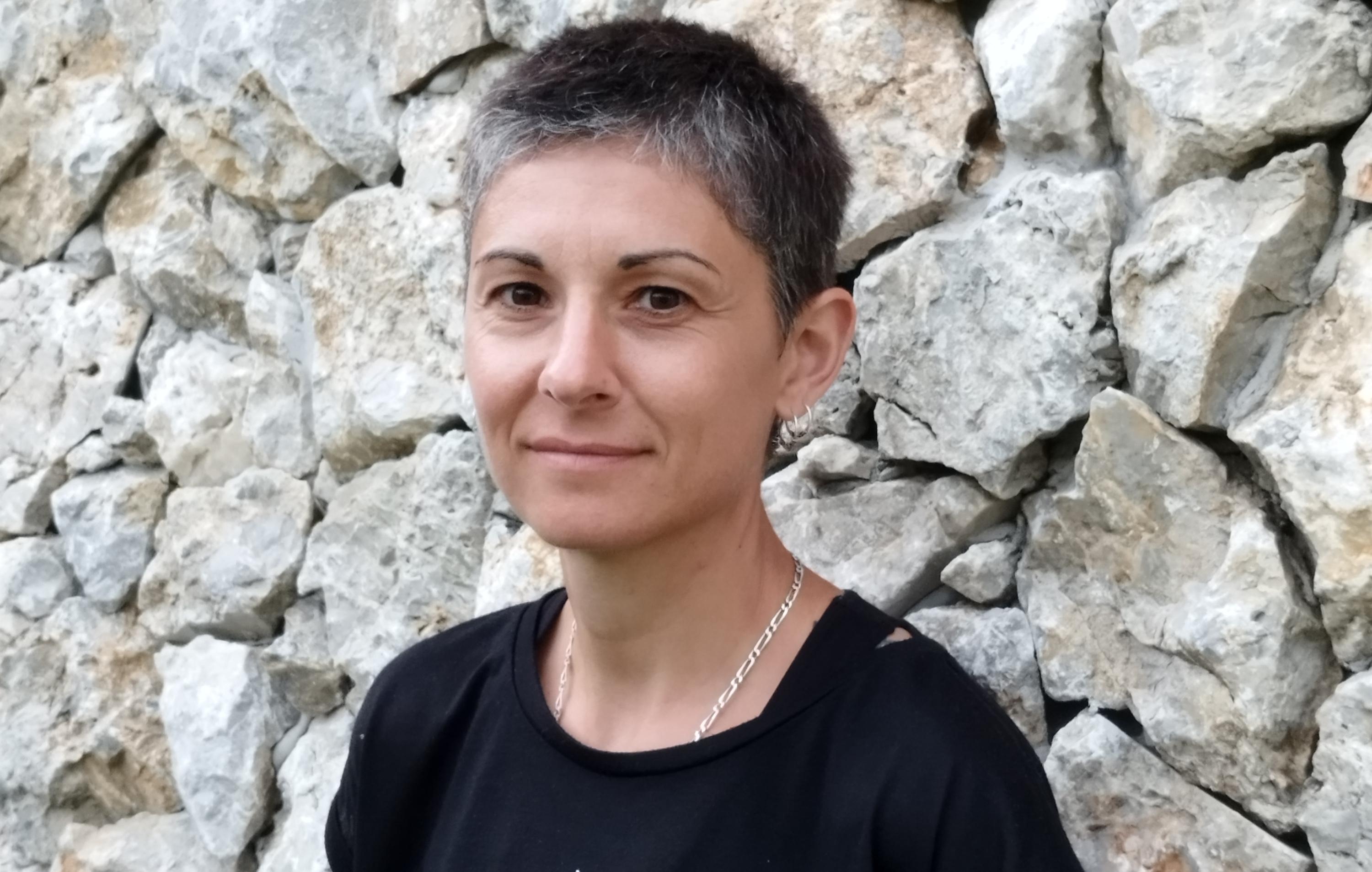
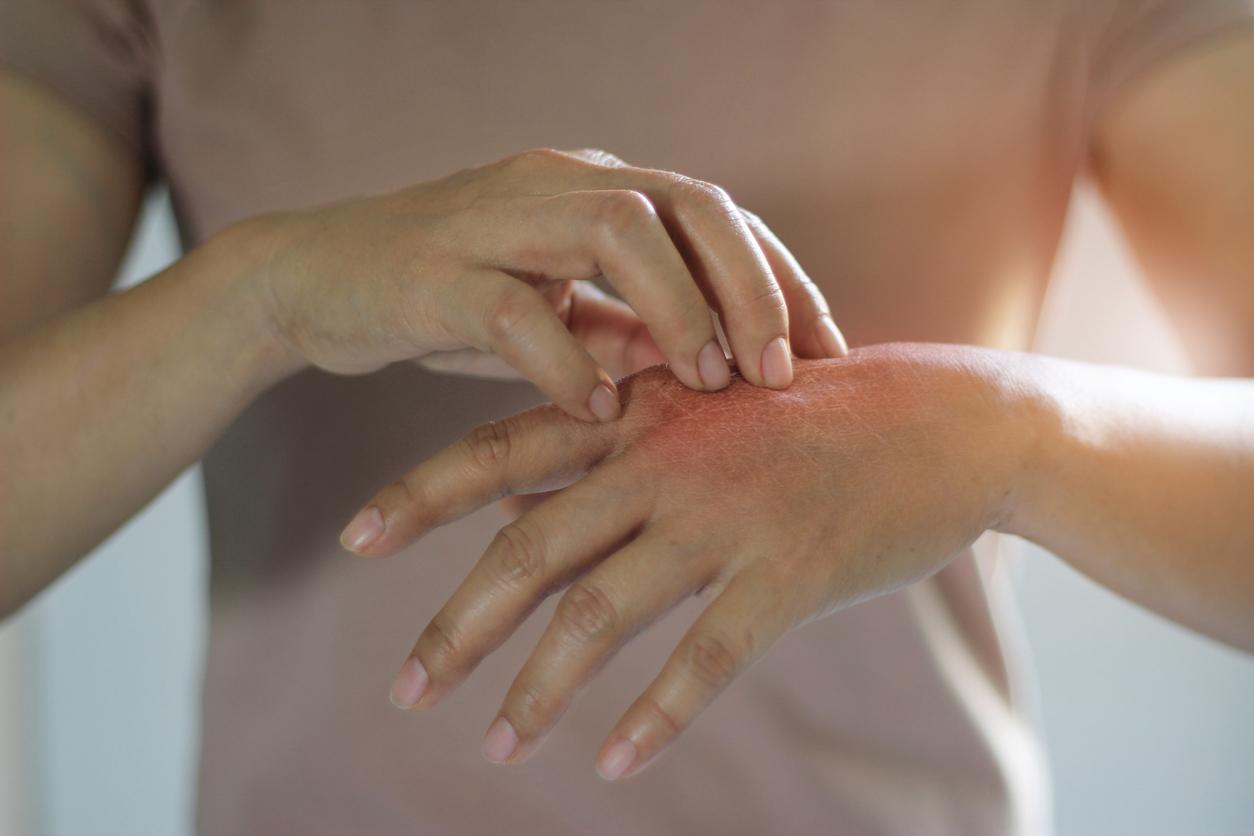

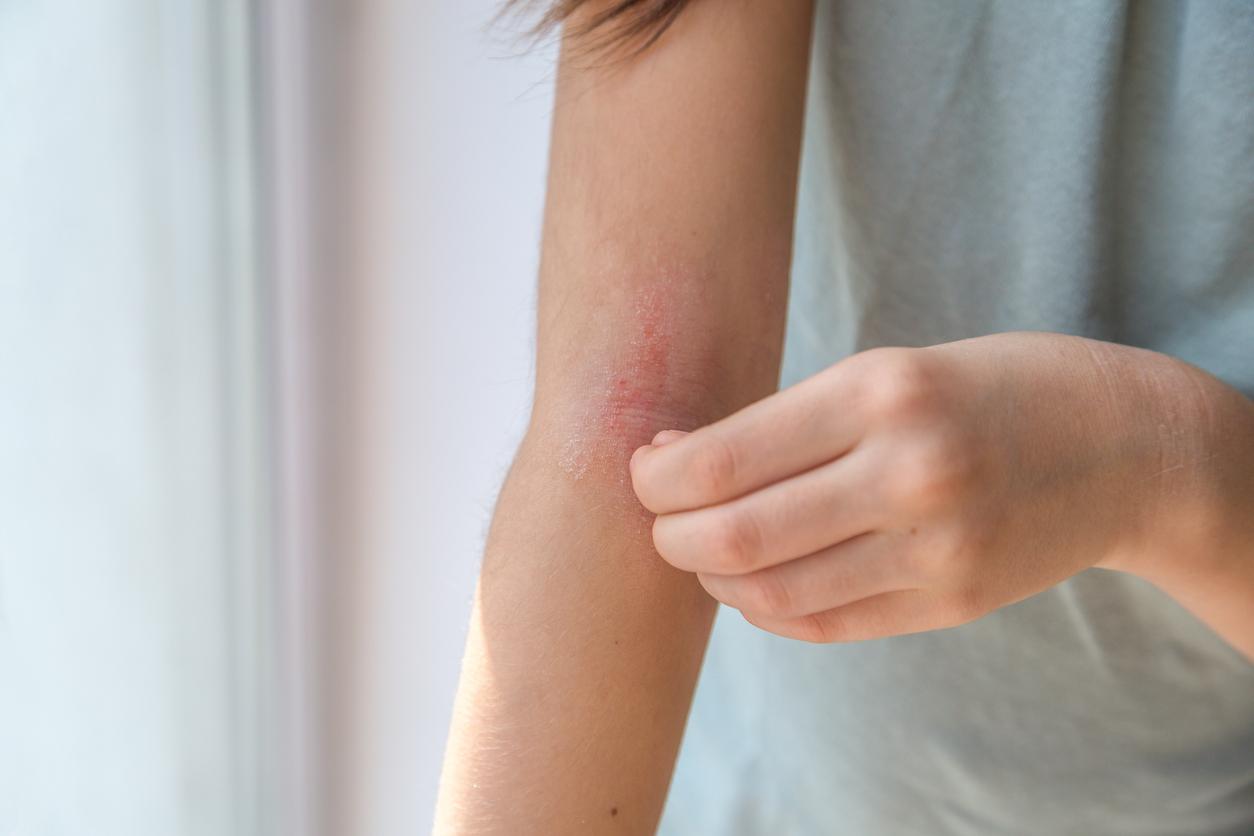
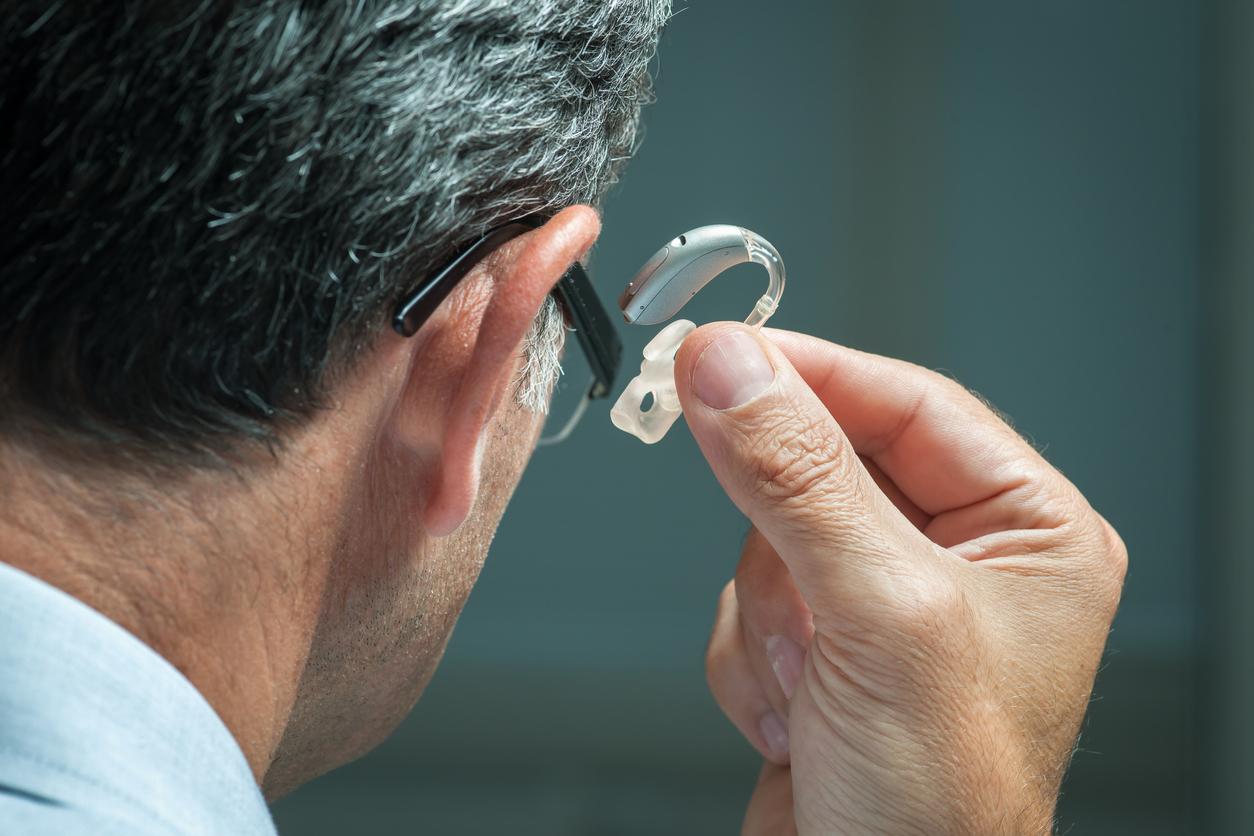
-1730888646.jpg)